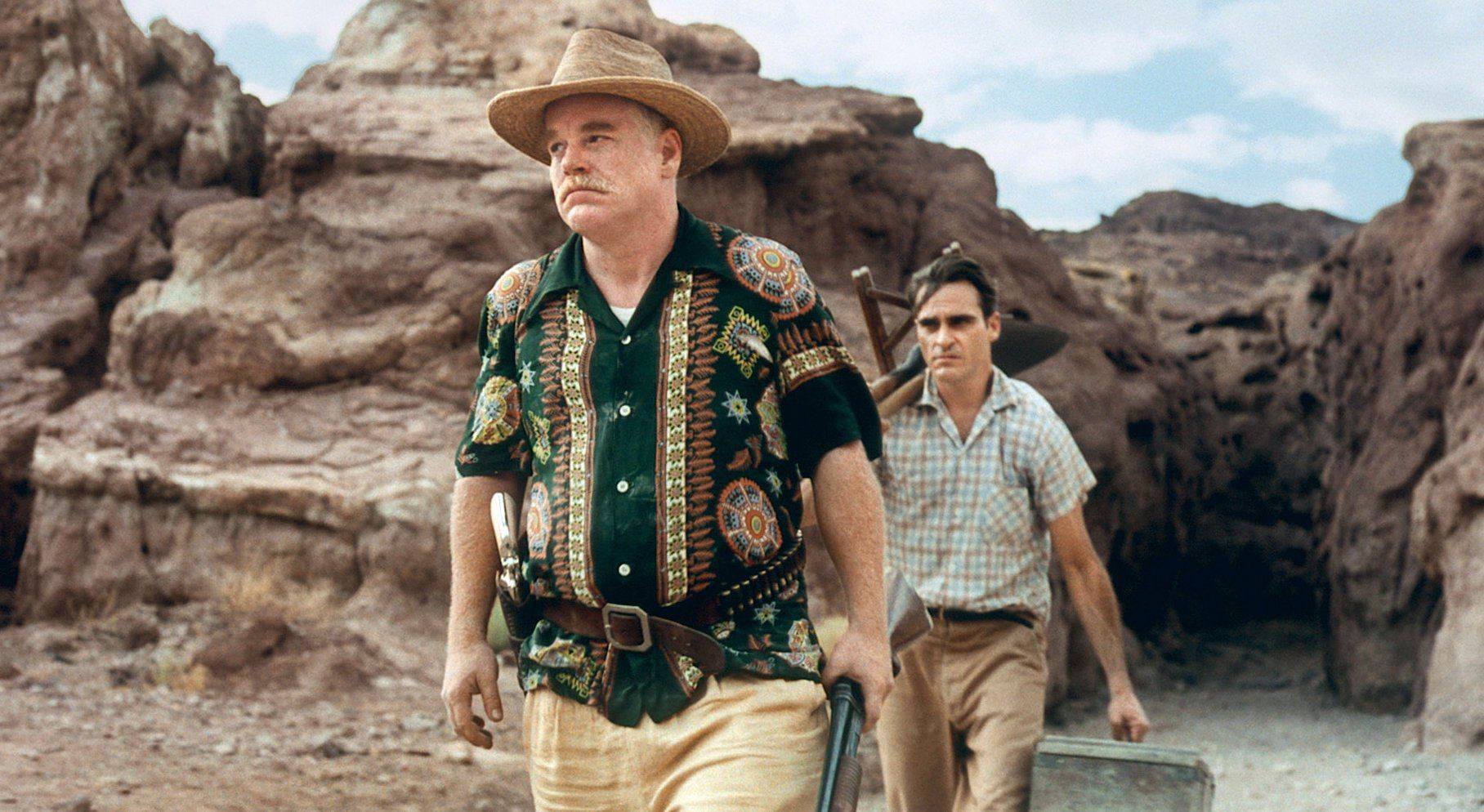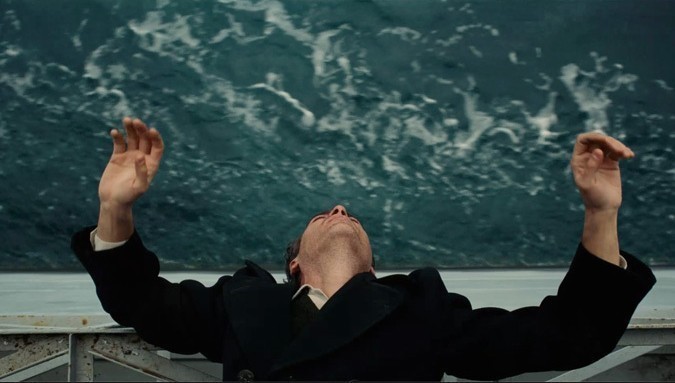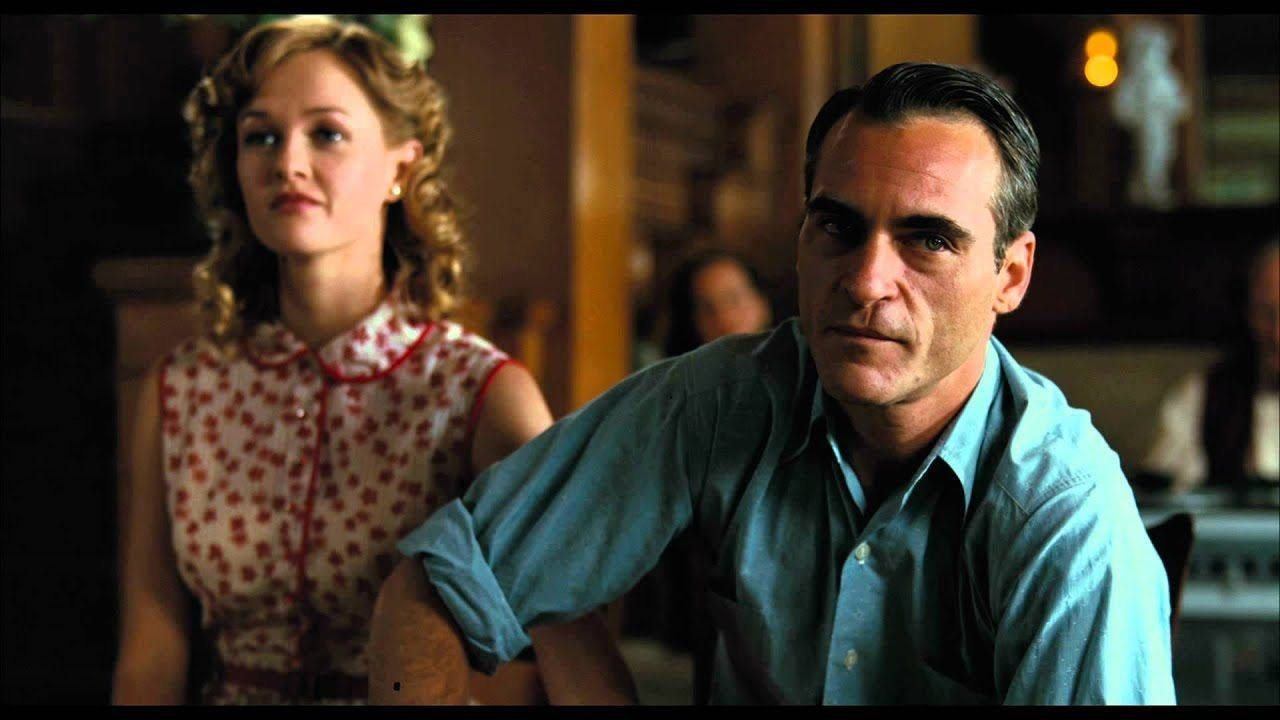The Master (2012)

The Master is a 2012 American psychological drama film written and directed by Paul Thomas Anderson. The movie stars Joaquin Phoenix, Philip Seymour Hoffman, and Amy Adams. It is set in the 1950s and centers around the complex relationship between a troubled war veteran, Freddie Quell, and Lancaster Dodd, a charismatic leader of a religious movement. The film explores themes of power, control, and the search for meaning in life.
Joaquin Phoenix plays Freddie Quell, a deeply disturbed and volatile character who returns home from World War II. Struggling with his inner demons, Freddie has difficulty adjusting to civilian life, resorting to alcohol and violence. His journey takes a pivotal turn when he meets Lancaster Dodd, played by Philip Seymour Hoffman, the leader of a group called “The Cause,” which is a thinly veiled reference to Scientology. Freddie is drawn to Dodd’s magnetic personality, which leads to their complicated and intense bond.
Philip Seymour Hoffman’s portrayal of Lancaster Dodd is one of the film’s standout performances. Dodd is a man who believes that he can offer answers to life’s biggest questions through his teachings. His calm demeanor and charismatic nature are juxtaposed with his authoritarian control over his followers. The relationship between Freddie and Dodd is central to the film, as it raises questions about authority, belief systems, and the manipulation of power.

Amy Adams plays Peggy Dodd, Lancaster’s wife, who is equally influential within “The Cause.” Adams brings a cool, calculating edge to her character, contrasting with her husband’s more outwardly charismatic role. Peggy’s character shows a different side to the movement, demonstrating how people in positions of power can manipulate those around them, using subtle tactics and emotional control. Her performance is a fascinating dynamic to the evolving power struggle between Freddie and Dodd.

The cinematography of The Master is visually striking, with Anderson using wide shots and long takes to create a sense of isolation and tension. The slow pacing of the film mirrors Freddie’s internal struggle and disillusionment with society. The film’s score, composed by Jonny Greenwood, complements the psychological depth of the story, using dissonant tones and eerie sounds to reflect the film’s unsettling atmosphere.

In conclusion, The Master is a deeply thought-provoking film that challenges the audience to reflect on human nature, the search for meaning, and the dangers of blind faith. The powerful performances by Phoenix, Hoffman, and Adams, combined with Anderson’s meticulous direction, make it a standout film in modern cinema. It is a film that leaves a lasting impression, questioning the complexity of relationships and the consequences of following a powerful leader.










